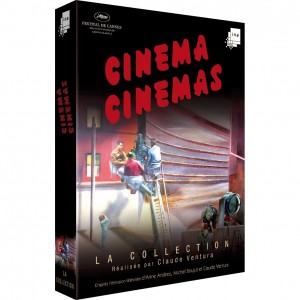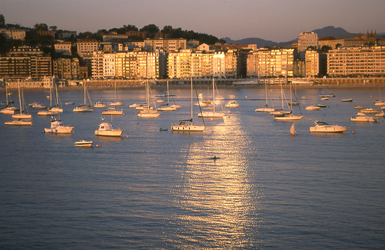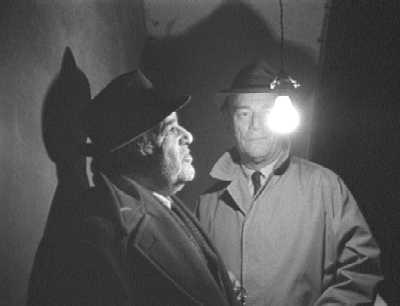From Moving Image Source [movingimagesource.us], posted March 5, 2009. The last time I checked, the box set Cinéma Cinémas was still available from French Amazon, for 25.56 Euros. — J.R.

How does one distinguish American cinephilia from the original, hardcore French brand? Based on an exchange I had with French critic Raymond Bellour and several other friends a dozen years ago — a round of letters first published in the French film magazine Trafic that later grew into a collection in English that I co-edited with Adrian Martin, Movie Mutations: The Changing Face of World Cinephilia — there’s some disagreement about how serious a role French cinema actually plays in “classic” (i.e., French) cinephilia. According to Raymond, spurred in part by remarks from the late Serge Daney — a mutual friend and the founder of Trafic — modern French cinephilia was from the outset basically American, as suggested by the archetypal question, “How can one be a Hitchcocko-Hawksian?”:
It’s a question of theory, but even more of territory. This is what necessarily divides me from Jonathan, in whom cinephilia was born, like in everyone else, through the nouvelle vague, but who, as an American, takes the nouvelle vague itself as an object of cinephilia — whereas the cinephile, in the historical and French sense, trains his sights on the American cinema as an enchanted and closed world, a referential system sufficient to interpret the rest. Read more
Commissioned by Richard Porton and written for (and published by) On Festivals: 03 (Dekalog), edited by Richard Porton, New York: Columbia University Press, 2009. Because of the length of this, I’m running it in two parts, and this is the second part. — J.R.
Apart from New York and Cannes, I can almost count the other film festivals I attended during the 1970s on one hand: San Sebastian in 1972; London in 1974–76 (after moving to London to work for the British Film Institute, as assistant editor of the Monthly Film Bulletin); Edinburgh in 1975 and 1976 (which I covered both years for Sight and Sound); Filmex in Los Angeles in 1977–78 (after I moved from London to San Diego, to teach film at the University of California); the Toronto Festival of Festivals, thanks to David Overbey, in 1978; and Venice, to attend a three-day conference called The Cinema in the 80s, in 1979.

The San Sebastian bash, held back then in July, was by far the glitziest -– an event that incorporated not only a good many midnight banquets at country clubs, but also a trip to Pampelona to attend the bullfight, with Howard Hawks — the festival’s guest of honor, head juror, and the focus of the festival’s retrospective — holding court. Read more
Commissioned by Richard Porton and written for (and published by) On Festivals: 03 (Dekalog), edited by Richard Porton, New York: Columbia University Press, 2009. Because of the length of this, I’m running it in two parts. — J.R.

I’m pretty sure the first film festival I ever attended was the third New York Film Festival, at age 22 in fall 1965, to see Alphaville. In 1963, I probably would have attended the first New York Film Festival if I hadn’t transferred from Washington Square College to Bard College, two hours up the Hudson, about half a year earlier. Later that same year, I took over the Friday night film series at Bard, but every once in a while I’d forego one of my own selections in order to take a weekend trip to New York and see something new I was especially curious about; my first looks at Muriel and Dr. Strangelove were during two such excursions. And my curiosity about what Jean-Luc Godard would do with science fiction was enough to persuade me to hop on the train or catch a ride with a classmate. As it turned out, I found the film silly, not really understanding most of its allusions to contemporary Paris or German expressionist cinema. Read more



